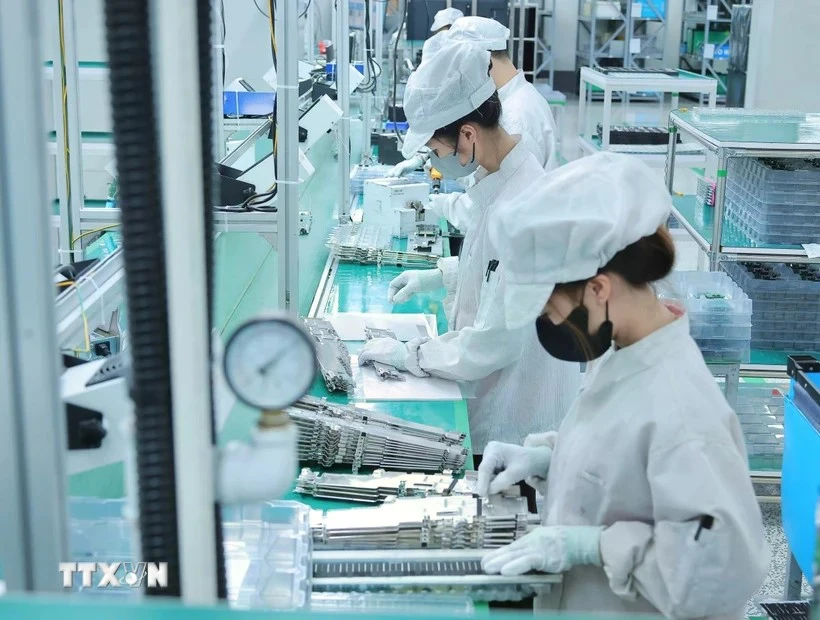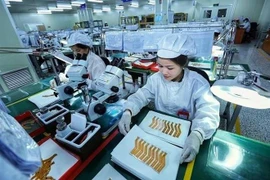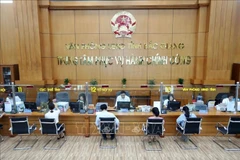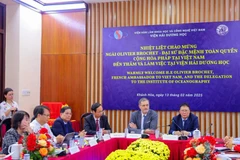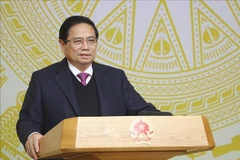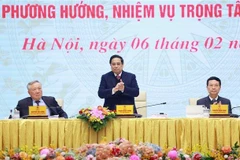HCM City (VNA) – Vietnam is placing great importance on developing the digital technology industry, given its significant contributions to the country’s economy.
Speaking at the 6th annual national forum on the development of Vietnamese digital technology enterprises last month, Party General Secretary To Lam stated that the total revenue from this industry in 2024 was estimated to reach 152 billion USD, an increase of 35.7% compared to 2019.
The digital technology startup ecosystem in Vietnam has also grown significantly, with nearly 74,000 enterprises. This ecosystem encompasses a wide range of products and services, from hardware and electronics to software and advanced technologies like artificial intelligence (AI), big data, and the Internet of Things (IoT).
The sector's workforce has reached over 1.67 million employees, a growth of more than 50% compared to 2019. By the end of 2023, nearly 1,900 digital technology enterprises had expanded into international markets, generating revenue of 11.5 billion USD, up 53% year-on-year.
This progress has significantly contributed to the improvement of Vietnam's global innovation index each year. According to Minister of Science and Technology Huynh Thanh Dat, in 2024, Vietnam ranked 44th out of 133 countries in the Global Innovation Index, two places higher than that in 2023 and up 32 spots compared to 2013. Among these, Vietnam led the world in three key indicators: high-tech imports, high-tech exports, and creative goods exports.
These figures demonstrate that the digital technology industry has become one of the most important economic sectors, helping Vietnam enhance its competitiveness, expand international cooperation opportunities, and contribute actively to building a comprehensive digital economy. It also plays a significant role in driving economic growth and sustainable development.
However, alongside these successes, Vietnam still faces significant weaknesses. The Party chief pointed out that the technological level of Vietnamese businesses is generally low, with the country participating only modestly in global supply chains.
Although the electronics sector has seen impressive growth, propelling Vietnam to 2nd place in the world for smartphone exports, 5th for computer component exports, 6th for computer equipment exports, and 8th for electronic component exports, 89% of the value of these components is from imported goods.
For example, Samsung has invested in Vietnam since 2008, yet of the 60 Tier-1 suppliers for the Republic of Korea’s group in Thai Nguyen province, 55 are foreign companies. In Bac Ninh, the figures are 164 foreign companies out of 176. Domestic enterprises are primarily engaged in providing services such as security, catering, and waste management.
The research and development capabilities of Vietnamese enterprises are still heavily reliant on foreign sources, limiting the country’s technological self-reliance. Additionally, the ability to attract high-tech talent remains insufficient, resulting in a shortage of qualified human resources, which directly impacts the capacity for innovation.
The development of digital technology and digital infrastructure is not evenly distributed across regions, creating a significant gap in access to technology. This disparity affects the ability to connect the nation as a whole and hinders the sustainable growth of the digital technology industry.
According to Dr. Tran Thi Tuan Anh, Vice Rector of the College of Economics, Law and Government under the University of Economics Ho Chi Minh City, to achieve sustainable economic development with the reliable support of new technologies, including AI, Vietnam must prioritise human services, ethics, and responsibility.
Do Cao Bao, a member of the Board of Directors of FPT Corporation, said that the speech by Party General Secretary To Lam at the 6th national forum on the development of Vietnamese digital technology enterprises highlighted the core of the issue. For the country to develop further and escape the middle-income trap, it must improve labour productivity by effectively tapping into the intellectual potential of the Vietnamese people, and focus on research and development in science and technology, with digital economy as the main driving force for the nation's development.
Minister Dat stated that the Ministry of Science and Technology is urgently coordinating with relevant agencies to build, and perfect the legal framework, with a strong determination to remove obstacles to promote the development of science and technology and innovation./.
